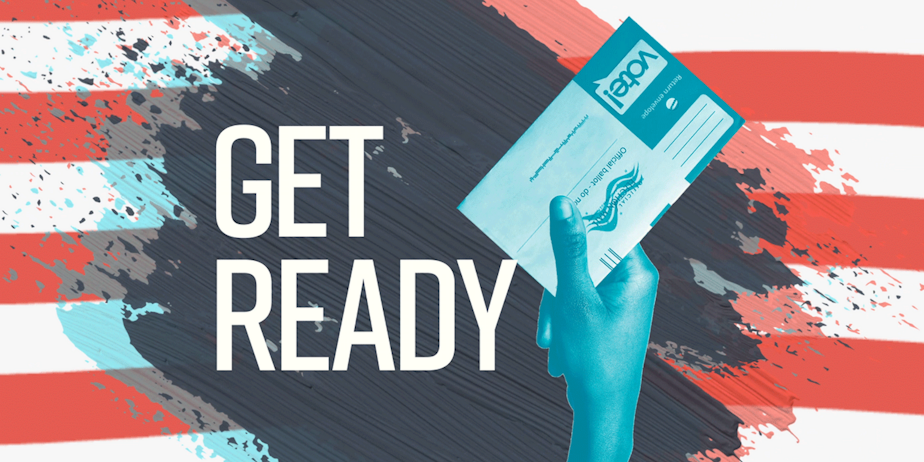How do you hold an election during a pandemic? Washington state is about to show us

This month, some people around Washington state will be voting in special local elections – tax levies and the like. How will this election work during a pandemic?
This interview has been lightly edited for clarity.
Washington Secretary of State Kim Wyman asked Gov. Jay Inslee to postpone the vote, but Inslee said it should be held.
Wyman joined KUOW’s Angela King to talk about how states can hold elections in such conditions:
I'm disappointed that we didn't postpone that April 28 election to the August date. And I understand why some districts across the state really wanted to continue.
In Washington, the people who process the ballots are county workers. So election offices across the state are really just trying to figure out how they're going to continue to do operations. And more importantly, what they're going to do if they have to shut down their own operations because of an outbreak in their in their offices.
How do you think the pandemic is going to change things for those who are going to be tabulating the ballots?
Well, the blessing, I guess, with this situation is that most of the counties who have elections, they're smaller parts of their county. No one has a countywide election.
The biggest challenge is a lot of our county workers, especially our temporary workers, are over 60. That is, most of them are retired people who come in and do this work because they really feel it's important. And that is really going to have an impact on August and November.
What if you have one person in an auditor's office who tests positive for COVID-19 and everyone they were exposed to has to quarantine as well?
Sponsored
What additional measures will you have in place to protect the ballot counters?
We're doing the same things that everyone is hearing: Frequent hand-washing. Stay home if you are sick. And you know, the social distancing. And that's a big challenge for even the smaller counties — just having the space to social distance.
So you can figure out a way to make people stay, six to 10 feet apart and all that, but you have to have the space to do it. And I know that we do have a couple of counties that don't have the space to do that. They're going to make it work because they have to.
A lot of states that had never done mail-in voting are now wanting to look at that option. What advice would you have for other states that are just now looking at this or starting the process themselves?
Between my election director and I, we have actually been contacted by or talked to all 50 states and Puerto Rico on this very topic, because everyone is trying to figure out how they're going to deal with this for presidential primaries.
So the lessons we've been sharing are really: You have to ramp up. It takes time to do this properly. You need to start working with the postmaster right now. Even if your primaries aren’t until August, you need to start getting permits. You need to start getting envelopes designed. You need to start educating the public. You need to build in the capacity for the processing.
Do you have high-speed envelope sorters, for example? Do you have someone who can do your initial mailing for your whole state? Our counterparts in our states are realizing that they don't know any of it. So we've spent a lot time sharing a lot of information, checklists, and envelope design and layout.
What about online voting? There's been some concern expressed about that. Are we ready to take that next step?
Sponsored
I've been doing elections a long time. And back in 2000, when I was still at Thurston County, we did a parallel non-binding trial of online voting. And I wrote a white paper. And I can tell you that 20 years later, my opinion on it hasn't changed.
The biggest thing is, one, the Internet isn't a secure transmission method, but the bigger one — and this is a part I don't think we can overcome — is people have to trust and believe in an electronic audit trail. We spend a lot of time in the elections community building an audit trail of paper ballots that if we get into an election.
Let's hypothetically say a governor's race that's separated by 133 votes at the end of it: You can actually show people paper ballots. We may argue about the ballot, but we can all look at it. And in an electronic voting scenario like online voting, you have to just go look at your code. And I think that it's very hard for me as an election official to get people to believe that those results are real.
Editor's note: King County does not have any special elections in the April 28 round. For counties that do, ballots will start arriving in mail boxes next week. And once again, you'll have the option of mailing it in or leaving it in a drop box. Check with your county elections office about whether you have an election.




